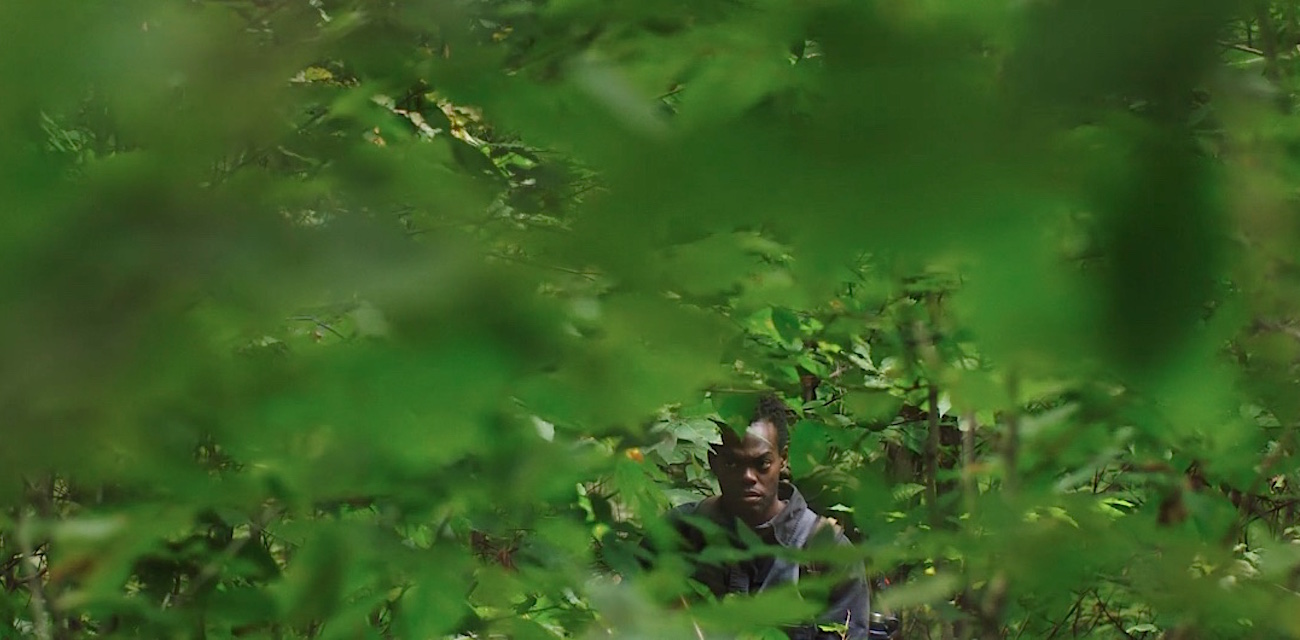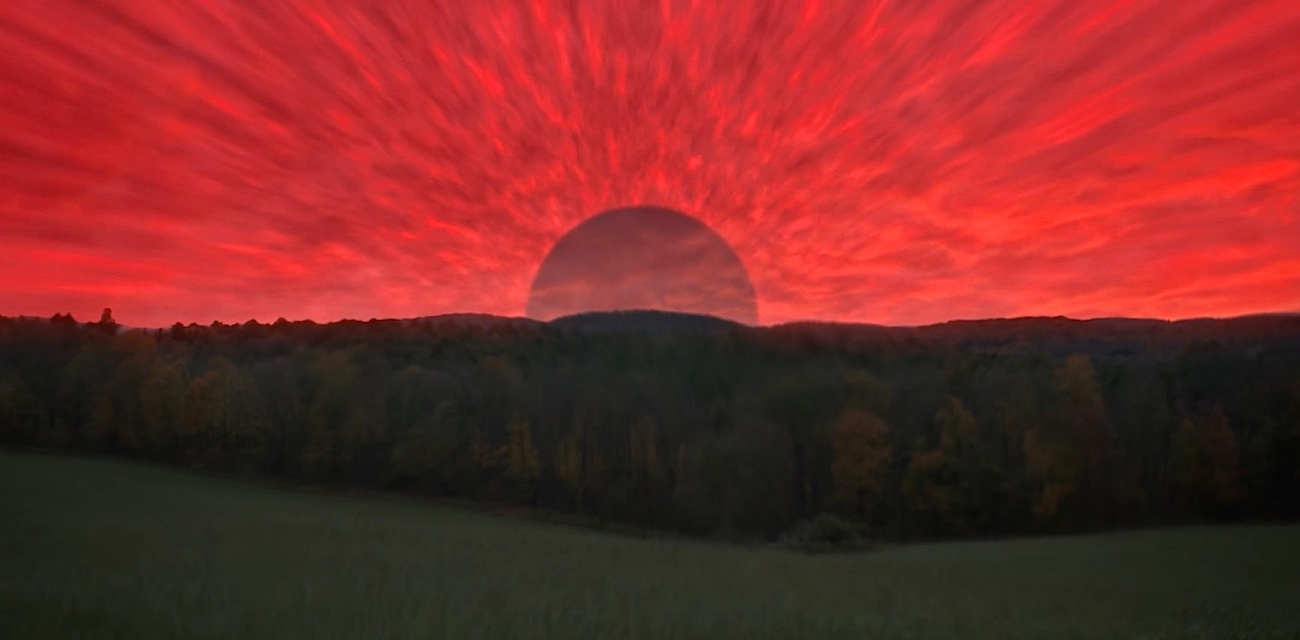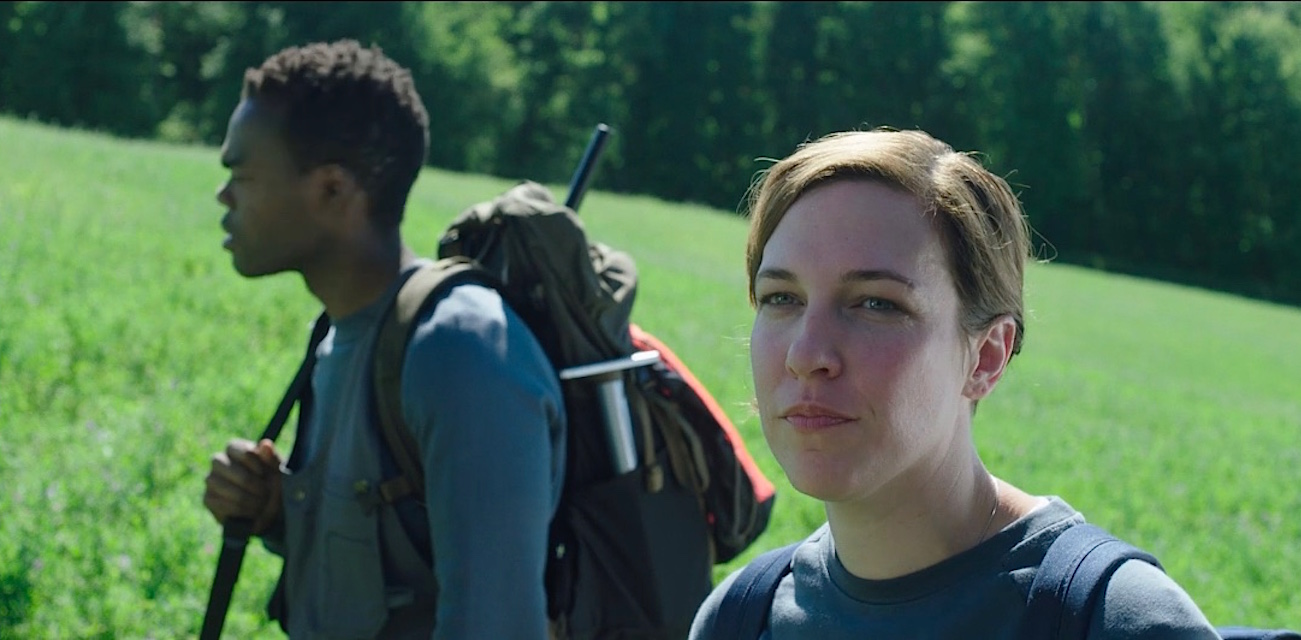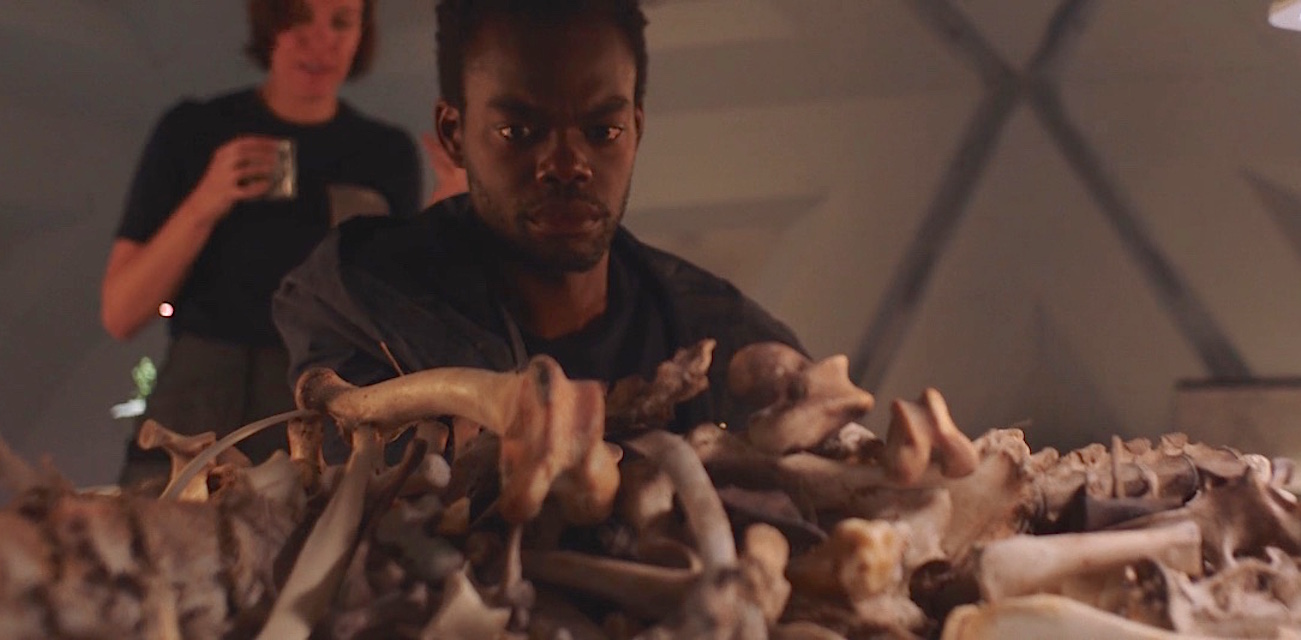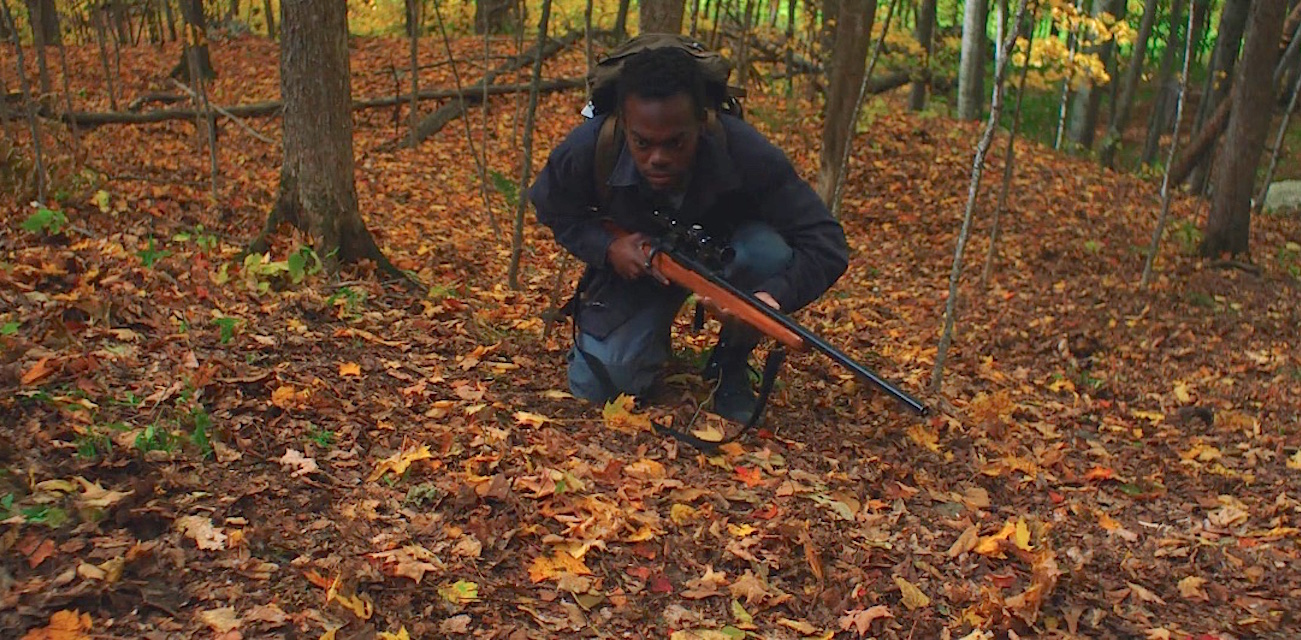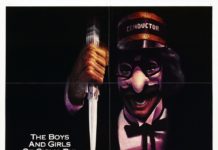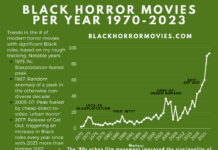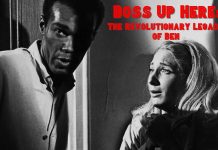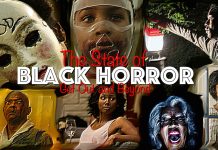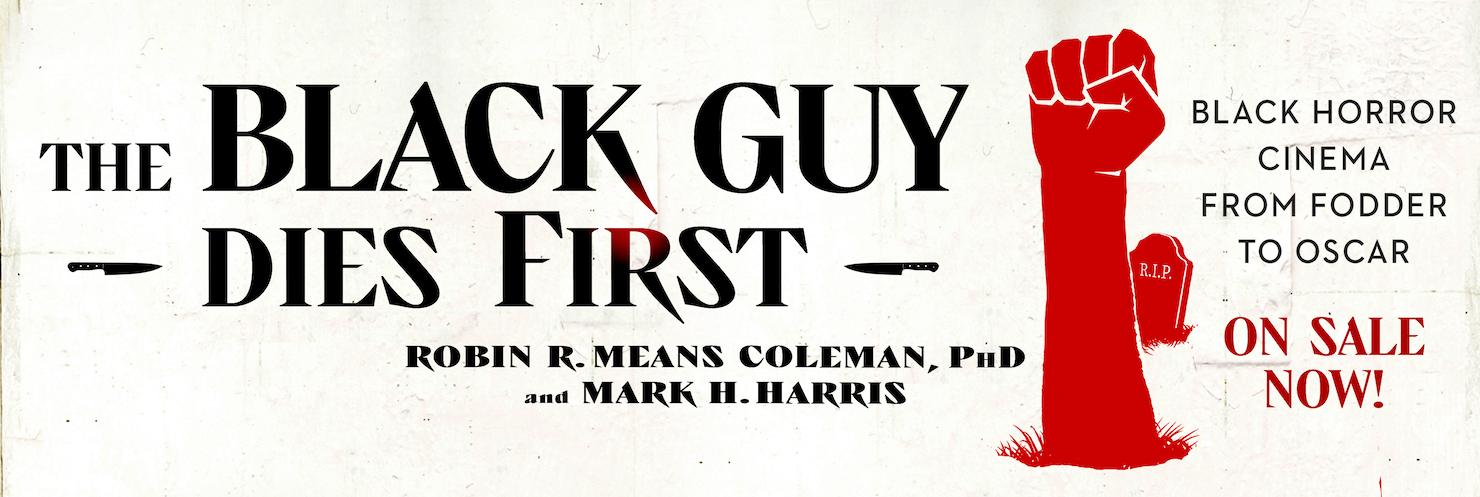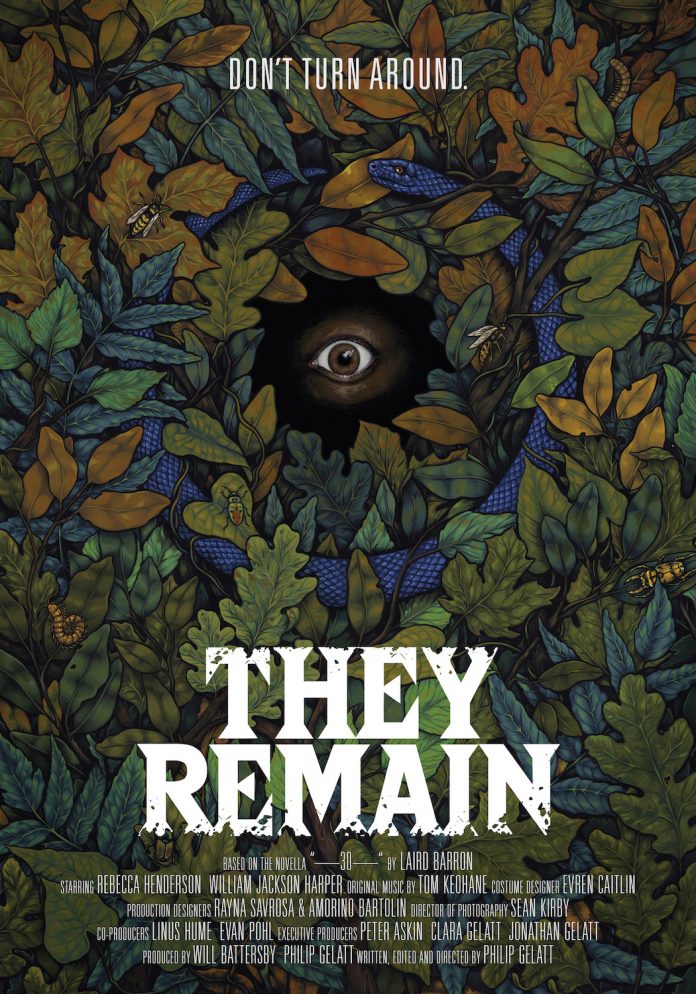They Remain opens with an H.P. Lovecraft quote (“Wise men have interpreted dreams, and the gods have laughed.”), an indication of the content and the tone to follow. Typical of Lovecraftian fare, it’s a bleak, thoughtful slow-burner about dark, unknown forces lurking beneath the surface of our world that are powerful enough to drive people insane.
Based on the Laird Barron short story “–30–,” the plot is simple: a pair of scientists, Keith (William Jackson Harper) and Jessica (Rebecca Henderson), head out into the field for a 3-month assignment in the remote wilderness tasked with finding an explanation for local aberrant animal behavior. In this instance, “aberrant” means “none” — or very little beyond insects — resulting in a virtual “dead zone.” As it turns out, that moniker is quite literal; decades earlier, the area was the home base for a Manson-like cult that killed an undetermined number of people, many of whom may still be buried within that very soil. Needless to say for a horror movie, the two scientists experience some weird goings-on.
The Lovecraft story that’s the source of the introductory quote, “Hypnos,” is about a man whose dreams haunt him so much that he resorts to extreme measures to avoid sleep. It’s an appropriate connection to They Remain, which weaves dream with reality to such an extent, it’s hard to know which is which. We experience most of the action (or inaction) through the eyes of Keith, who cycles through various stages of lucidity as he sleeps for long stretches, sometimes under the influence of alcohol and sometimes under the influence of…something else.
Although there are moments of delicious menace in the movie, the haziness of the events makes for a maddeningly opaque viewing experience — the frustration increasing when I went back to read the Barron story and found its balance of lucidity and mystery to be much more palatable. Perhaps the result of stretching a short story into a feature film or perhaps the result of not benefiting from the story’s interior monologue, the film suffers from too many moments of quiet ambiguity — typically with Keith alone in the woods, staring at nothing in particular, a look of vague intensity on this face as he ponders some train of thought to which we’re not privy. Combined with the is-it-real-or-not visions, it can be a bit too perplexing to bear.
There is certainly nightmarish potential in the plot — the original story is quite chilling — but it’s not fully conveyed in the movie. The otherworldly evil of the area feels more evident in the short story, which details odd animal behavior and more explicitly talks about how the unexplained events could tie into religious belief.
As shown in his under-appreciated 2011 directorial debut The Bleeding House, writer-director Philip Gelatt’s strength is in portraying interpersonal relationships and the mind games people play with one another. That’s where They Remain works best, driven by strong performances from Harper and Henderson and heady dialogue that maintains a hint of nastiness and mutual distrust throughout. Interestingly, while Barron’s tale has the couple being ex-lovers, Gelatt omits that backstory — for the better, I believe, as it’s intriguing to see how this nascent relationship develops in such an unholy vacuum.
What IS true to the story is the fact that Keith is black and Jessica is white. While race is mentioned in the original text — Keith compares himself to Sidney Poitier, something Harper can pull off in a blerdy sort of way — it isn’t in the movie, although in neither is it of any import. More important is their personality clash — she’s an ambitious corporate climber, while he’s suspicious of authority…and of humanity as a whole. In this instance, the movie’s ambiguity does work — that is, obscuring how much of their interaction is colored by natural, personality-driven animosity and how much is colored by th unnatural animosity of their surroundings.
When Gelatt ventures outside of the dynamics between the two characters to deliver scares, the results are more uneven. The nightmarish visions just aren’t striking enough, and frankly, showing less would’ve been more effective. There are moments that work, fright-wise, but too often they feel slightly off, delivered in almost too matter-of-fact a manner. While the film captures the disquieting serenity of the natural environment, it ends up being slow burn without a big enough payoff.
Still, there’s a lot to like about They Remain. Its uncompromising nature eschews cookie-cutter labels, and its slow, pastoral, hallucinogenic tone is reminiscent of a film like A Field In England. Its quirky editing jumps from scene to scene, mid-conversation to mid-conversation, lending a sense of energy and activity to stretches that might otherwise have little going on. And the pulsating, retro score helps amp up the anxiety throughout, even if it promises a culmination it can’t quite deliver.
